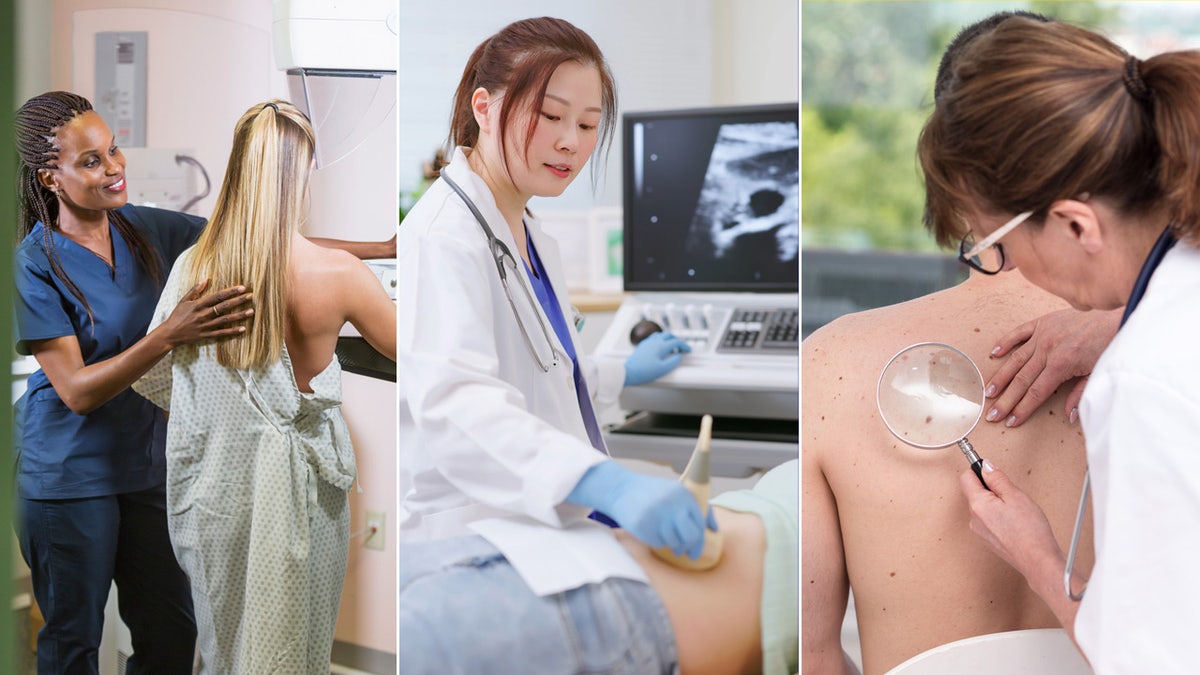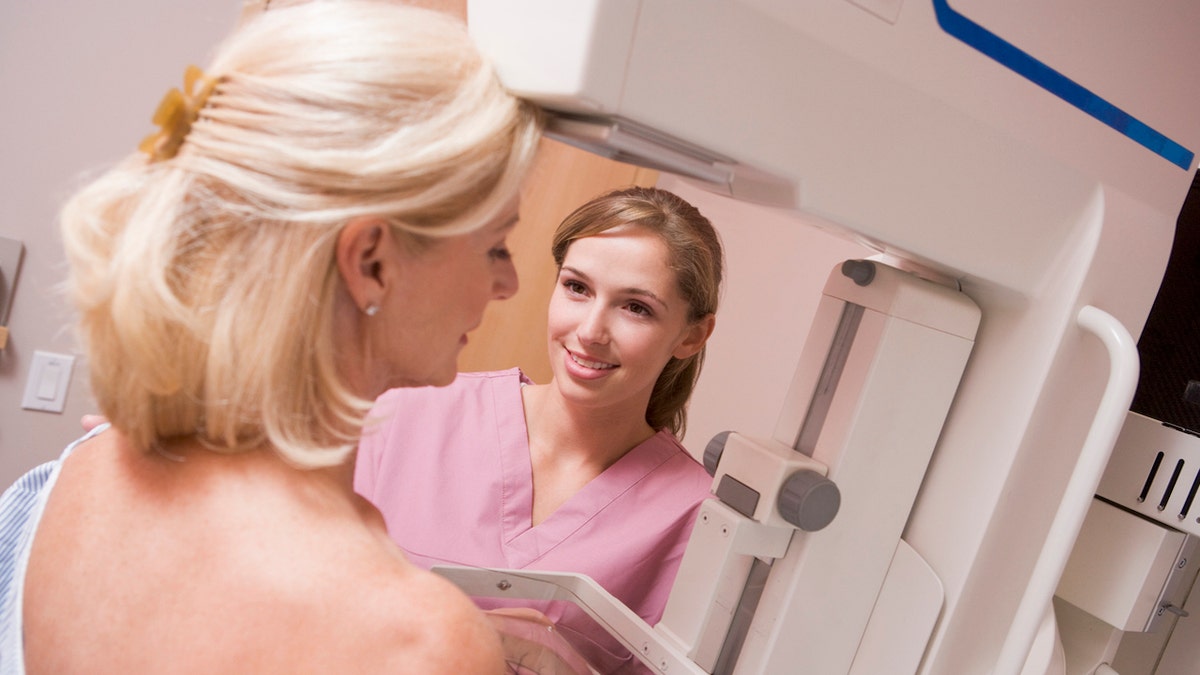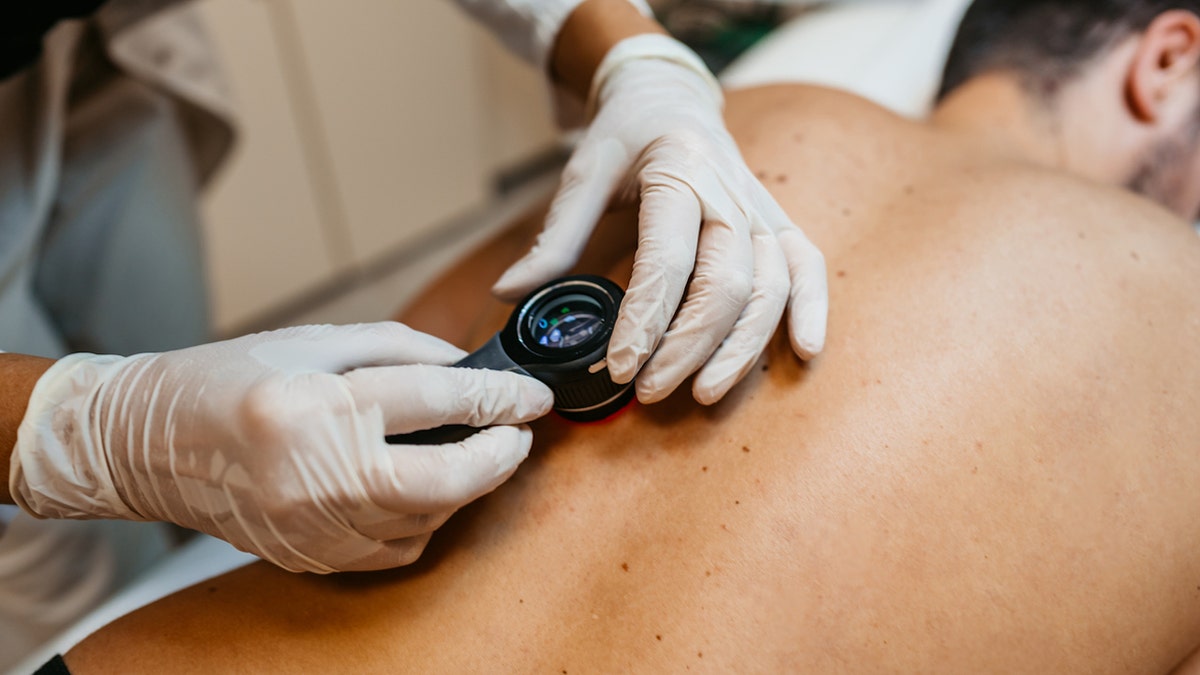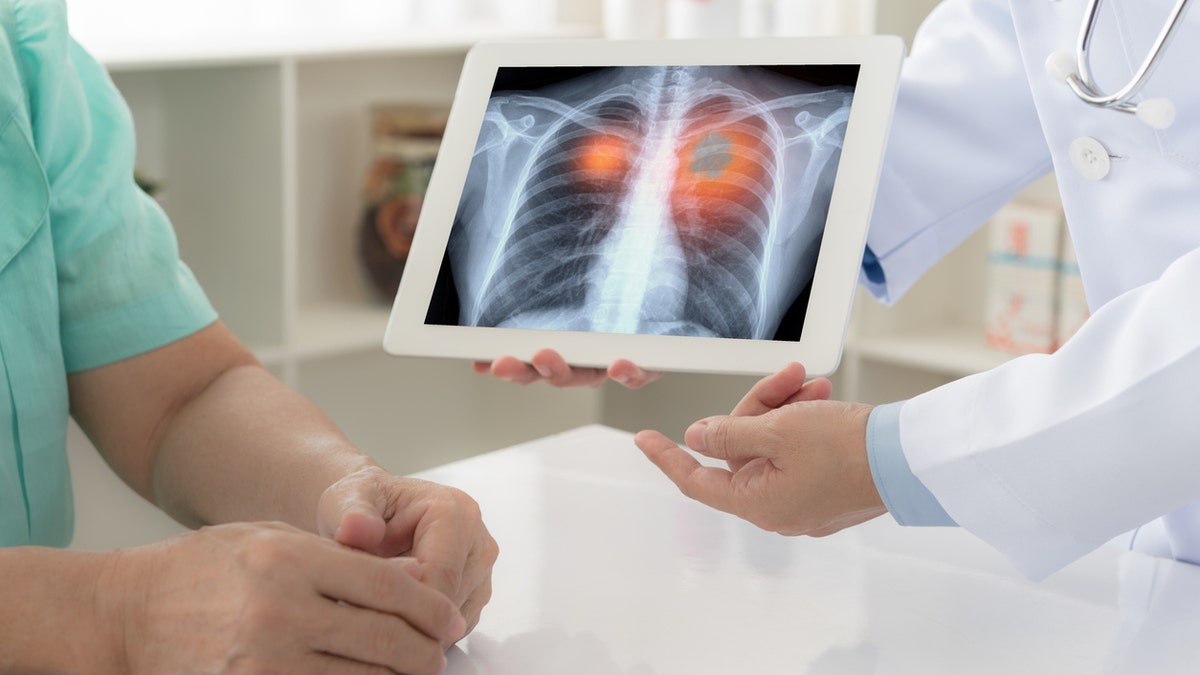Health panel lowers recommended mammogram age to 40
Fox News contributor Dr. Nicole Saphier details the major change in guidance from the U.S. Preventive Services Task Force as breast cancer cases rise in younger women.
With more than 1.9 million new cancer cases expected to be diagnosed in the U.S. in 2023, according to the American Cancer Society (ACS), screenings are critical to detect the disease in its early stages before symptoms appear, when the odds of successful treatment are higher.
With different screening methods used for various types of cancer, some people may be confused about which doctors to see.
Dr. Paunel Vukasinov, a board-certified internal medicine specialist and medical director at Medical Offices of Manhattan in New York City, shared his insights and recommendations for annual cancer screenings.
MORE YOUNGER PEOPLE ARE RECEIVING CANCER DIAGNOSES, STUDY FINDS — ESPECIALLY THIS TYPE
"A routine cancer screening is a test to find out if someone has cancer before there are any signs or symptoms," he told Fox News Digital.
Screening recommendations are provided by the U.S. Preventive Services Task Force (USPSTF), an independent group of volunteer disease prevention experts.

Screening recommendations are provided by the U.S. Preventive Services Task Force (USPSTF), an independent group of volunteer disease prevention experts. (iStock)
"Using an evidence-based approach, they provide guidance about how often different groups of people would benefit from cancer screenings," Vukasinov said.
Breast cancer screenings
About 13% (about one in eight) of U.S. women will develop invasive breast cancer sometime in their lifetime, according to BreastCancer.org.
The USPSTF now recommends that women begin talking to their primary health care providers about breast cancer screenings at age 40.
MISSING MAMMOGRAMS: OVER 20% OF WOMEN DON’T FOLLOW BREAST CANCER SCREENING GUIDELINES, STUDY SAYS
This change was announced in May 2023, when the recommended age was reduced from 50 to 40.

Women should begin talking to their primary health care provider about breast cancer screenings at age 40. (iStock)
A mammogram (breast X-ray) is typically recommended every two years beginning at age 40, but this can be sooner for women with an increased risk of breast cancer, including the following groups, according to Vukasinov:
- Those with a personal or family history of breast diseases or breast or ovarian cancer
- Women who started menstruation before age 12
- Women with a known genetic mutation
- Those who have been exposed to radiation exposure
- Women with certain drug exposures and hormone therapies
In addition to mammograms, MRI scans of the breast are sometimes used, but medical imaging is not the only form of breast cancer screening.
"Breast self-exams are one of the simplest forms of cancer screening. It’s important to be aware of what ‘normal’ means and feels like for your own body, and to consult a doctor when something doesn’t seem right," said Vukasinov.
"A routine cancer screening is a test to find out if someone has cancer before there are any signs or symptoms."
Although the American Cancer Society doesn’t recommend regular clinical breast exams or breast self-exams as part of routine breast cancer screening, the organization notes on its website that "women should be familiar with how their breasts normally look and feel and should report any changes to a health care provider right away."
Cervical cancer screenings
Each year in the U.S., there are about 11,500 new cases of cervical cancer, which takes the lives of 4,000 women, per the Centers for Disease Control and Prevention (CDC).
Not only is it possible to discover cervical cancer early using routine cancer screenings, but it can be found before it starts while it’s still in the "precancerous" stage, noted Vukasinov.

Each year in the U.S., there are about 11,500 new cases of cervical cancer, which takes the lives of 4,000 women, per the CDC. (iStock)
Cervical cancer screenings are performed via a Pap test, also commonly called a Pap smear.
During this test, the practitioner scrapes the cervix to collect cell samples, which are then sent to a lab to check for any abnormalities that could indicate cancerous or precancerous cells.
"These routine tests are often performed by an OB/GYN, but many doctors’ offices and clinics can also perform them," Vukasinov said.
NOVEL CANCER TREATMENT OFFERS NEW HOPE WHEN CHEMO AND RADIATION FAIL: ‘BIG CHANGE IN PEOPLE'S LIVES'
Cervical cancer screenings usually begin at age 21 and continue until around age 65 for most women, the doctor noted.
Colorectal cancer screenings
Colorectal (colon and rectal) cancer is the third most commonly diagnosed cancer in the U.S., the ACS states.
In 2023, experts predict there will be 106,970 new cases of colon cancer and 46,050 new cases of rectal cancer.

Colorectal (colon and rectal) cancer is the third most commonly diagnosed cancer in the U.S., the ACS states. (iStock)
These cancers usually begin with slow-growing polyps, which are small clumps of cells that collect in the colon lining.
During routine cancer screenings, these polyps can be found and removed.
The most common form of colorectal cancer screening is the colonoscopy.
COLORECTAL CANCER IS SHOWING UP IN YOUNGER PEOPLE AND AT MORE ADVANCED STAGES: STUDY
"A colonoscopy is generally an outpatient procedure wherein a doctor will examine the colon with a flexible instrument containing a camera," said Vukasinov.
"For most people, this screening begins at age 45 with a follow-up needed every five years."

For some types of cancers, the screenings themselves haven’t shown a health benefit or could even pose more risk than the disease, according to Medical Offices of Manhattan. Yet "medicine continues to advance every day — and your doctor can help you navigate it to get the care you need." (iStock)
Screenings for this type of cancer may be needed earlier or more frequently for people with an increased risk of colorectal cancer.
That includes people with:
- A personal or family history of colorectal cancer
- A history of polyps
- Inflammatory bowel diseases
- Certain known genetic conditions
Lung cancer screenings
Lung cancer is the second most common type of cancer in the U.S., not counting skin cancer, the ACS website states.
In 2023, there will be 238,340 new cases and 127,070 deaths from the disease, the ACS estimates.
Not everyone needs lung cancer screenings, but they are important for those who meet the following criteria:
- People who smoke or have quit within the last 15 years
- Those between ages 50 and 80
- People with a smoking history of 20 "pack-years" or more
"Pack-years" are a measurement of someone’s cigarette consumption, Vukasinov explained.

A special type of X-ray scan, a low-dose computed tomography (CT) scan, is used to check the lungs for signs of cancer. (iStock)
"A single pack-year means that, on average, a person smoked one pack of cigarettes per day for one year," he said.
"So, 20 pack-years could be a pack per day for 20 years, two packs per day for 10 years or half a pack per day for 40 years. This will vary for each individual, and even over that individual’s own lifetime."
ERRORS IN DISEASE DIAGNOSIS LEAD TO NEARLY 800,000 DEATHS, DISABILITIES IN US EACH YEAR: STUDY
A special type of X-ray scan, a low-dose computed tomography (CT) scan, is used to check the lungs for signs of cancer.
"As of today, this is the only recommended routine screening for lung cancer," said Vukasinov.
Skin cancer screenings
Skin cancer is the most common type of cancer in the U.S., with about 5.4 million cases diagnosed each year, according to the ACS.

Skin cancer is the most common type of cancer in the U.S., with about 5.4 million cases diagnosed each year, according to the ACS. (iStock)
Although skin cancer is often more treatable than other types, early and fast treatment is still important to improve the long-term prognosis, experts say.
"A dermatologist can help determine the best cadence for skin cancer screenings," said Vukasinov.
BE WELL: CATCH SKIN CANCER WARNING SIGNS EARLY WITH REGULAR SELF-EXAMS
"This is still an active area of research, but skin cancer screenings may be especially important for people with a family history of skin cancer or with current signs of skin cancer, such as irregular or changing skin features," he added.
Although the ACS doesn’t have any official guidance for skin cancer screenings, many doctors recommend monthly self-checks, it says on its website.
Other cancer screenings
There are over 100 documented types of cancer, but screenings aren’t recommended for all types or for all people.

There are over 100 documented types of cancer — but screenings aren’t recommended for all types or for all people. (iStock)
For some types of cancer, the screenings themselves haven’t shown a health benefit or could pose more risk than the disease, according to Medical Offices of Manhattan.
"Certain tests could be harmful, for example, if they lead to direct complication from the procedure or lead to indirect harm through false positives or false negatives."
CLICK HERE TO SIGN UP FOR OUR HEALTH NEWSLETTER
Screenings are more widely recommended for those who have a personal or family history of a certain type of cancer.
"For anyone who’s unsure, talk to your primary care doctor," said Vukasinov. "Share your concerns and what you hope to achieve through cancer screenings."
CLICK HERE TO GET THE FOX NEWS APP
"Medicine continues to advance every day — and your doctor can help you navigate it to get the care you need."


